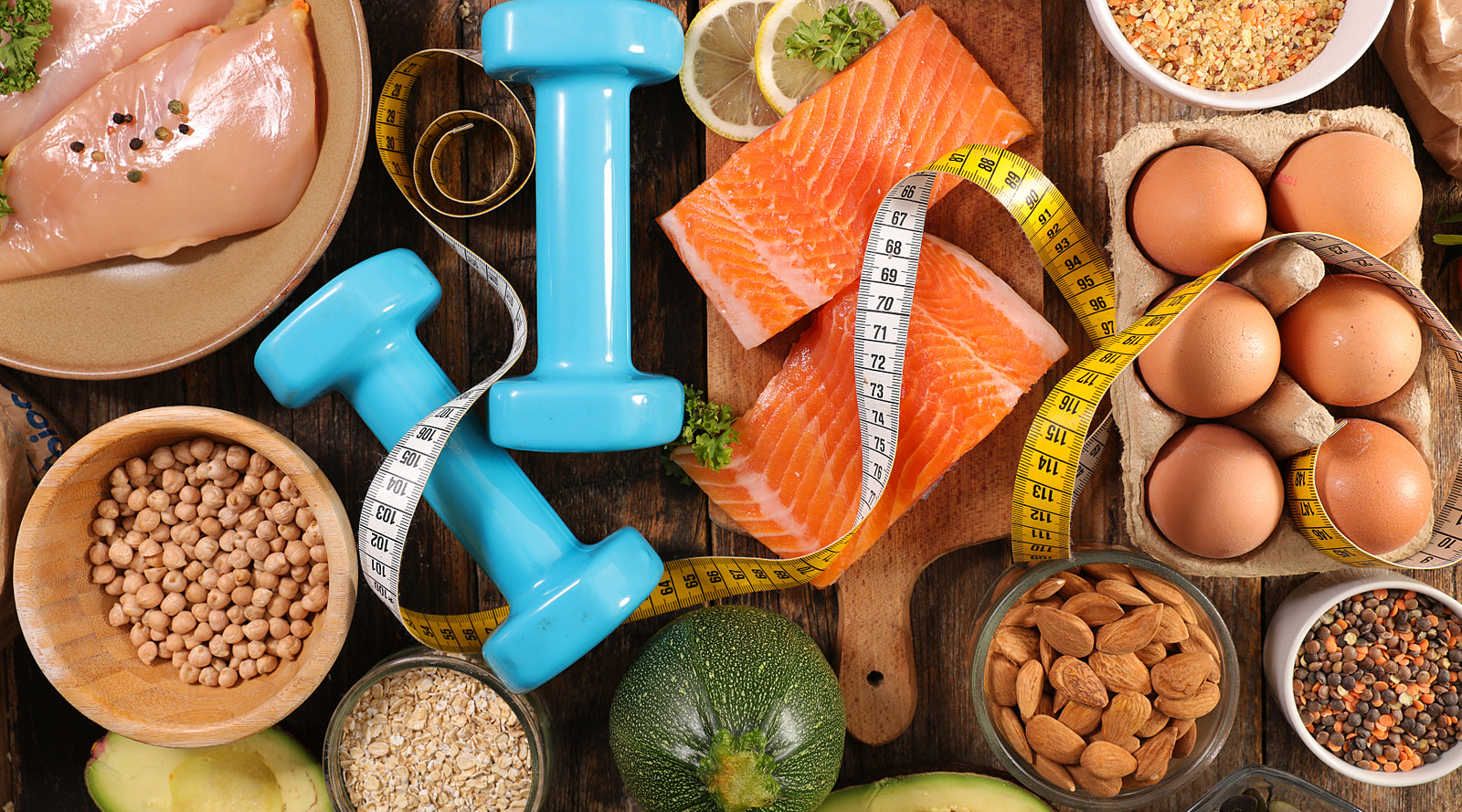Protein is essential for our bodies to function properly. It is foundational to all our cells, and adequate protein from quality sources supports our metabolism, strength, and so much more. Let's look at the basics of what protein is and how to use it to fuel your body for optimal health.
Protein is one of the three major macronutrients your body relies on for energy. Fat and carbohydrates are the other two.
Amino acids are the basic building blocks of protein. Protein is made up of 20 amino acids; our bodies can make some of them, but nine are considered "essential" because we need to get them from our dietary intake. "Complete proteins" contain all nine essential amino acids and "incomplete proteins" contain some but not all. You don't have to have a complete protein source at every meal, but you can obtain all the essential amino acids by eating a balanced diet from a variety of protein sources throughout the day.
Adequate protein levels help repair and rebuild the body's cells and tissues and help you maintain or build muscle mass. Protein is also an important nutrient in metabolism and weight management as it helps maintain healthy blood sugar levels, insulin and satiety from balanced meals.
Too little protein can lead to a loss of muscle mass, decreased immune strength and a weaker heart and respiratory system. Lower intake of protein can also lead to a deficiency in keratin or collagen, two types of protein that support healthy hair, skin and connective tissue overall.
The widely recommended daily intake suggests that adults should aim for a minimum of 0.8 grams of protein for every kilogram of body weight. That's about 7 grams for every 20 pounds of body weight, so for example, a person who weighs 160 pounds should aim for a minimum of 60 grams of protein per day.
Still, your body weight, age, current health, goals and activity levels can all factor into your individual protein needs. For optimal nutrition, aim to get about 10% to 20% of your daily energy intake (calories) from protein.
High-protein diets are popular and can support weight loss and body transformation goals for some. However, they may not be ideal for long-term health. A high-protein diet often translates to more than 20% of the calories you consume coming from protein, and some diets recommend as much as 40% or 50%. A diet that favors one major macronutrient can lead to inadequate intake of the others, so it is often optimal for most to include a balance of all three.
To start, include a high-quality protein, along with healthy fats and carbs, at each meal. Not all protein sources are equal, so it's not just a matter of getting in your grams but also considering a balanced approach to whole food nutrition. Animal sources contain the most protein when it comes to the grams per serving and are often complete proteins as they contain all nine essential amino acids, but getting enough protein in your diet doesn't mean you have to eat animal foods.
You can still get an adequate intake of protein and all the essential amino acids with a vegan or vegetarian diet by including a wide variety of plant proteins. Soybeans, tofu, leafy greens, spinach, asparagus, beans and legumes are rich sources of plant protein. Blue-green algae, hemp seeds, and quinoa are complete proteins. Adding an all-in-one protein powder to your favorite smoothie is a great way to fuel your body with the nutrients it needs to start the day.
Some protein sources also have other components including different types of fats, sodium and fiber. Processed forms can often include additives like nitrates, sugar, stabilizers and preservatives, so taking the quality into consideration when it comes to health is as important as the amount. Favoring pasture-raised poultry and eggs, wild fish or plant-based options like beans, legumes and nuts has been shown to lower the risk of health-related issues when compared to a high intake of red meat or processed meat options. Unless you're vegan or vegetarian, consuming a mix of plant-based and animal-based proteins works well for most. Cod, chicken, and turkey are some of the highest-quality sources of animal-based protein.
Many people might not be getting enough protein in their diet — the solution is to make sure you're getting the right amount for yourself from the best sources and spacing it out throughout the day. Opt for grass-fed and finished, organic and sustainably sourced proteins whenever possible. With variety, your body will get enough protein and all the essential amino acids it needs to function optimally.
If you are active, you may need to adjust your protein intake to support your muscular physique and body composition - listen to this podcastto learn more about how much protein you need based on your workout routine and goals.
